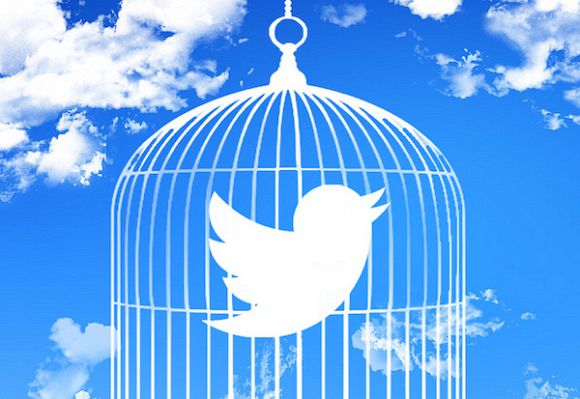Opinion pages and comment sections are slowly being devalued, edging society closer to a one-party state of mind, writes Dean Frenkel.
FOR MANY DECADES, reputable newspapers have published an opinion page with every edition. Two designated spaces of prime real estate featuring prime ministers, academics, journalists, industrialists and anyone who could write well enough to displace many submitters who competed for the two spots in every edition.
Opinion is under serious attack. Until recently, matters of opinion were commonly valued and sought after. Now they are diminished. The “unwritten book of contemporary values” is seriously downgrading opinion as a lesser piece of communication, a put-down.
Opinion is rapidly becoming invisible and at this rate of decline, the opinion page may eventually disappear from our newspapers. It is already being restricted to a select few. Opinion has lost its gravitas, it is the new word-pariah. How did it fall out of favour so rapidly?
Part of this attack is a response to the appalling Donald Trump. Trump woke members of the populace to how the system marginalised them. He duped them, stoked their anger and won their passionate support, in the process turning democracy into a loud and dangerous circus. In response, the establishment was emboldened to embrace the other extreme.
Indeed, the war on opinion is being waged by socio-political extremists who identify as progressives and conservatives. Opinion has become a battle for control of the agenda.
The war on opinion is leaving a battlefield of victims. First is the age-old field of wisdom; Socrates would be turning in his grave. Wisdom is a deeper knowing that attains conceptual resonance without necessarily requiring societal processes to back it up. It is higher-level thinking that mindfully delivers uncommon sense with a combination of foresight and hindsight.
Another set of victims has felt coerced to withdraw from participating in debates on incendiary subjects due to reflexive accusations of being phobic, racist or insensitive. There is only room for one side and no room for nuance when agendas rule the news.
On the other hand, the opinion pages have rarely featured Indigenous voices and look what happened to Stan Grant when one actually does.
Devaluing opinion has disturbing implications for the future of humanity. Arguably, we are devolving into a dystopian society. The intellectual skills of wisdom and judgment and the grass-roots skill of intuition are in danger of becoming extinct.
Another victim is the field of critical thinking. We are no longer being trained to think for ourselves. Consider how the arts have been downgraded across the board; an arts degree costs a fortune now. Society has adopted a perverse form of ad hominem: to play the man, not the ball, to over-value credentials and devalue content. It’s more important to be correct in theory than in practice, to be properly credentialed or be ignored.
We used to hear a lot more about “clear thinking”, “debates” and “arguments”, now the power word is “evidence”. We are expected to trust the experts immediately if they press the “evidence-based” button.
3,000 years ago, Aristotle believed that science and the arts were both crucial. He might have suggested that science without the arts is like a skeleton without skin, a brain without a heart and a mind without a personality. A body of knowledge needs both science and the arts.
It’s worth delving into the deeper layers to examine what opinion actually is.
Opinion is a meta-skill comprised of perception, identity, values and expression; an X-ray that gives an insight into the authentic self. It is an art that develops in time and goes through many evolutionary stages before it can be finessed.
Of course, there are times when expression is ugly, usually because of inelegant presentation in words or tone.
Or perhaps someone’s values are toxic — if so, they can only ever be remedied and healed if their opinions are discussed. As someone who has experienced the abhorrence of anti-semitism, I prefer to know when someone is festering unacceptable feelings. Repressed opinion can build up and implode. The true danger is when there is no portal for expression. This may explain the epidemic of mass shootings in America.
When too many opinions are expressed at once it is cacophonous. We sometimes hear that during discussion programs on radio and TV. Too much noise makes no sense but it’s not so hard to manage it. The need for time and space limits doesn’t justify mass silencing strategies.
Recent times have seen some publications remove the readers’ comments section or heavily moderate them. The Conversation website had a fantastic robust comments community, probably its most riveting component. The editors have now inexplicably removed the entire section.
Some people think opinion is divisive, others find it insightful. If the war on opinion achieves its ultimate end, we will be left with the frightening prospect of people without opinions and worse, people who are not allowed to have opinions. If this day arrives, we will be told what to believe, forced to join a one-party state of mind.
If ego was a dirty word in the 1970s, then censorship, not opinion, should be the dirty word in the 2020s. I want to hear a diverse range of opinions. It makes life more interesting.
Dean Frenkel is a writer and communications consultant, lectured in Public Speaking and Communications at Victoria University, worked with politicians and written extensively for newspapers.
Related Articles
 This work is licensed under a Creative Commons Attribution-NonCommercial-NoDerivs 3.0 Australia License
This work is licensed under a Creative Commons Attribution-NonCommercial-NoDerivs 3.0 Australia License
Support independent journalism Subscribe to IA.















